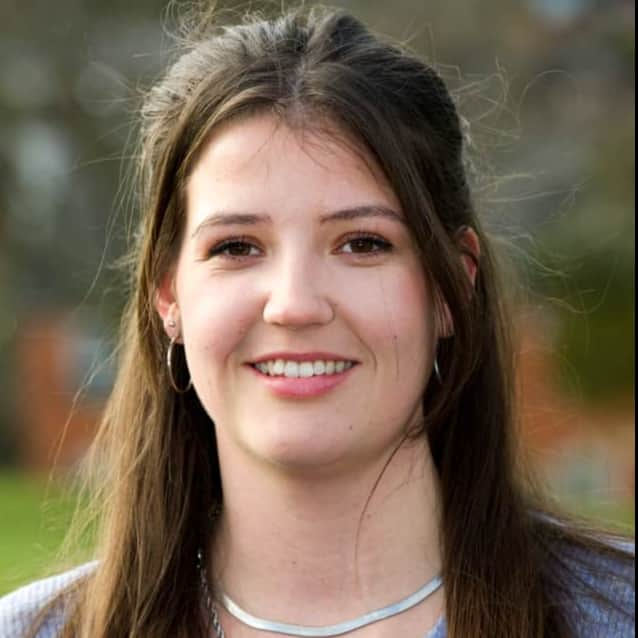Local elections 2023: voters turned away from polling stations due to new photo ID rules
and live on Freeview channel 276
A number of would-be voters have been turned away on local elections day due to newly-introduced photo ID rules, candidates have told NationalWorld.
People across England have been heading to the polls on Thursday (4 May) to vote in the biggest round of local elections since 2019, and for the first time ever, they have been required to present photo ID. The new rule has been criticised by campaigners who have warned it could prevent people from voting - something which has happened in parts of the country.
Advertisement
Hide AdAdvertisement
Hide AdCandidate Maddy Redpath of Residents for Guildford and Villages has attended several polling stations across Guildford, Surrey, on voting day - and said she had seen “a fair few” people be turned away. She told NationalWorld: “I saw four people turned away because they didn’t have ID, and a couple turned away because she had the wrong form of ID.”
Meanhile in Cambridge, NationalWorld understands a number of students were turned away for trying to use their student bus passes as ID. One of the criticisms of the voter ID law is that the accepted identification disenfranchises younger people, as a lot travel cards for elderly people are accepted, such as an Oyster 60+ card and a Freedom Pass, whereas students cards are not allowed.
The Electoral Commission admitted that new photo ID rules posed “a challenge” and some people were “regrettably” unable to vote as a result. “It will be essential to understand the extent of this impact, and the reasons behind it, before a final view can be taken on how the policy has worked in practice and what can be learned for future elections,” a spokesperson added.


The watchdog previously said that it would “not be possible to accurately quantify” the impact of the new rules by counting who does or doesn’t have ID at the ballot boxes - meaning the true number of voters who have been turned away may never be known.
Advertisement
Hide AdAdvertisement
Hide AdIt said instead it intended to ask councils to record the number of people who are refused a ballot paper by polling station staff because they do not have photo ID, but not the number of people who are turned away after speaking to the greeters that some local authorities plan to deploy outside polling stations.
Reasons the Electoral Commission gave for this included the fact that staff will change throughout the day in polling stations, and difficulties related to people who accompany friends or family to polling stations where they are not registered. It also claimed voters “could turn around before or after they have spoken” to greeters.
This year’s local elections will be the first contest at which voters will be required to present photo ID at polling stations in order to vote. Expired ID will be accepted, although councils are warning photos must still be a true likeness to the individual.
Most forms of existing photo ID will be accepted, including:
- Passport
- Driving licence
- Blue badge
- A PASS card
- Oyster 60+ card
- Freedom Pass
- National identity card issued by an EEA state
- Voter Authority Certificate
For a full list of accepted forms of photo identification, and more info on the Voter Authority Certificate, check the Electoral Commission’s website.
Guildford Borough Council told NationalWorld: “We are documenting the total number of electors who went to vote at a polling station, but were not issued a ballot paper by the close of poll.
"We will also record the total number of electors who were not initially issued a ballot paper in a polling station, but then came back with accepted ID and were able to vote. This information will be sent to the Electoral Commission. The deadline for doing this is 12 May 2023."
Advertisement
Hide AdAdvertisement
Hide AdLoading....
Campaigners have urged ministers to rethink the new rule, warning that millions could be prevented from voting. Estimates say that about two million UK voters are thought to not possess the correct form of ID, and only 85,000 have applied for the free ID document that has been offered by the government.
Jess Garland, director of policy and research at the Electoral Reform Society, said: “We’re already seeing countless examples of people being denied their right to vote due to these new laws - from people caught out by having the wrong type of photo ID to others turned away for not looking enough like their photo.
“One voter turned away is one voter too many. The government must take lessons from the problems we’re seeing today at polling stations across the country and face up to the fact that these new rules damage our elections more than they protect them.”
Tom Brake of Unlock Democracy, who is leading a coalition of groups opposed to the policy including the Electoral Reform Society, Fair Vote UK, and Open Britain, said: “Today has been a dark day for British democracy.
Advertisement
Hide AdAdvertisement
Hide Ad“Reports from all over the country confirm our very worst fears of the impact of the disastrous policy which has been made worse by the shambolic way it has been introduced.”
The Electoral Commission plans to publish its initial findings into how the ID mandate affected voting in the coming weeks.
Comment Guidelines
National World encourages reader discussion on our stories. User feedback, insights and back-and-forth exchanges add a rich layer of context to reporting. Please review our Community Guidelines before commenting.
